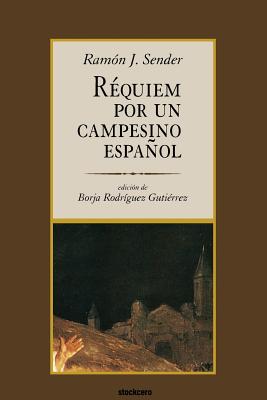Réquiem por un campesino español, a short, elegant and moving account of the tragic effects of the Spanish Civil War on a small Aragonese population, is often called Ramón J. Sender's greatest masterpiece. It was the author's own favorite book and -in his own words- of all his novels it is "the simplest, and the most universal". This characteristic of "universality" flows through all Sender's writings, while he manages to still be the most Spanish of the generation that began to write just before the onset of the Spanish Civil War of 1936-39. As a journalist who allied himself with the Republican side in the Spanish civil war, Sender (1901-82) was a privileged eyewitness to Spain's struggle, suffering and defeat, a situation he continued to write about after he left Spain in 1938. While his texts are considered essential source material by historians of this era, at the same time, the anguish and pain, losses and victories of the profoundly Spanish characters are portrayed as universal emotions and experiences that continue to move readers of all nationalities. Within Hispanic literature, Réquiem por un campesino español (first published in Mexico in 1953, banned in Spain for many years) is considered to stand on a par with Hemingway's The Old Man and the Sea within North American literature. Both are brief and profound, and recount intense, dramatic stories that initially seem uncomplicated. They are both important novels that in their brevity and apparent simplicity continue to resonate with essential truths. Three qualities of the novel are emphasized in the essay by Prof. Borja Rodríguez Gutiérrez that introduces this edition: the story's meticulous, mathematical structure devised by a self aware writer; its use of reiteration of certain key elements; and the carefully structured allegory with which it transmits its denunciation of the injustice and treachery that underlie history. The careful lexicographic notes included will help the modern reader grasp the plot in all its dramatic, Spanish, intensity.














